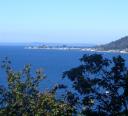I’m old enough to remember when the term built-in obsolescence began to gain currency. Apparently, the movement on the part of manufacturers to create goods that would have a shorter, definitive life-span started in the 30’s (I wasn’t around then 🙂 ) and really became part of our culture in the 60’s (I was around then) and is now so common we rarely think twice before trashing something we bought a week ago, year ago, two years ago, whatever.
There was a time, really, when you bought things and expected them to last. And last a long time.
This built-in obsolescence or planned obsolescence is, in many ways, at the root of our collective carbon footprint now and I find myself thinking about it with relation to My 30 Days of consumer celibacy and how The Compact works, that was mentioned here the other day. The author, Wendee Holtcamp spent 30 days not buying anything new and chronicled the adventure. According to the Compact, the goal is to wean oneself from our consumer addicted society….
What happens in an experiment like this, I imagine, is similar to what has happened in my own experiment with urban transportation: once you break a pattern of behavior, you begin to view everything in relation to that pattern differently.
So, now I’m starting to wonder about this buy-nothing-new project that started in San Francisco by Rachel and others. It’s not some anti-corporation, self-punishing hard-core movement–it’s smart people who understand that the more new stuff we buy, the more landfill we create and the more we put into motion this global supply chain that is at the heart of an unsustainable consumer culture.
When we first bought the house we’re living in now, we had to do a lot of very necessary repairs right off the bat. Some of them involved new wood siding on the house to repair dry-rot, etc., and I remember thinking, “what would it be like to follow the production of this lumber from the forest all the way to our house?” Because it’s not just the lumber yard where you purchase it, it’s the trucks, trains, ships that get the wood from the forest (sustainable or otherwise); it’s the rubber in the tires, the steel in the chassis, the hardhats, the gloves, the dock with its hauling equipment and cranes; it’s the computerized programs that track inventory, the reports, the finance and banking; it’s the plastic ties, the labeling, the marketing and the packaging…it goes on and on.

For some reason, it makes me think of the Marley’s ghost in A Christmas Carol who shows up to haunt Scrooge dragging a long line of chains and money boxes rattling behind him.
Basically, that’s what buy-nothing-new is getting at: recognizing that the mass of stuff we buy new involves a greater participation in this completely unsustainable pitch of manufacturing, marketing, distribution, and sales–unsustainable because it takes resources to create and distribute stuff, but the model doesn’t put stuff back in.
So, the Compact is focused on not introducing more new stuff into the world, borrowing or buying used, and thereby perhaps driving a market demand that items be built better to last longer. That then got me to thinking about Seth Godin’s post commented on here a while ago that he will know we’re actually gaining ground in the environmental movement when cars have LED readers on their bumpers that advertise the mileage–encouraging longevity over new, new, new.
I’m not ready to do the compact quite yet, and when I do, I’ll definitely do a 30 day trial first; but I’m really captured by the thought of reducing the massive global supply chain that goes into our consumerism–making things last longer, repairing, recycling, borrowing, lending. There’s also a wonderful network and community aspect to the Compact that is attractive.
Daily Stats (Friday, Saturday, Sunday)
Car: 8 (2 tasks)
Bike:7 miles
Ped: 3.5 miles
Bus:0
air: 0
PS. I have a confession to make. I’ve gone back and forth and back and forth on whether or not to include other people’s cars in my daily stats. I’ve been incredibly ambivalent about it but have this last week decided: No. This project is about My Car, not all cars. So, I’m really only looking at ways I use my car…and the possibility of living without a “my car” in the future. Thoughts?




